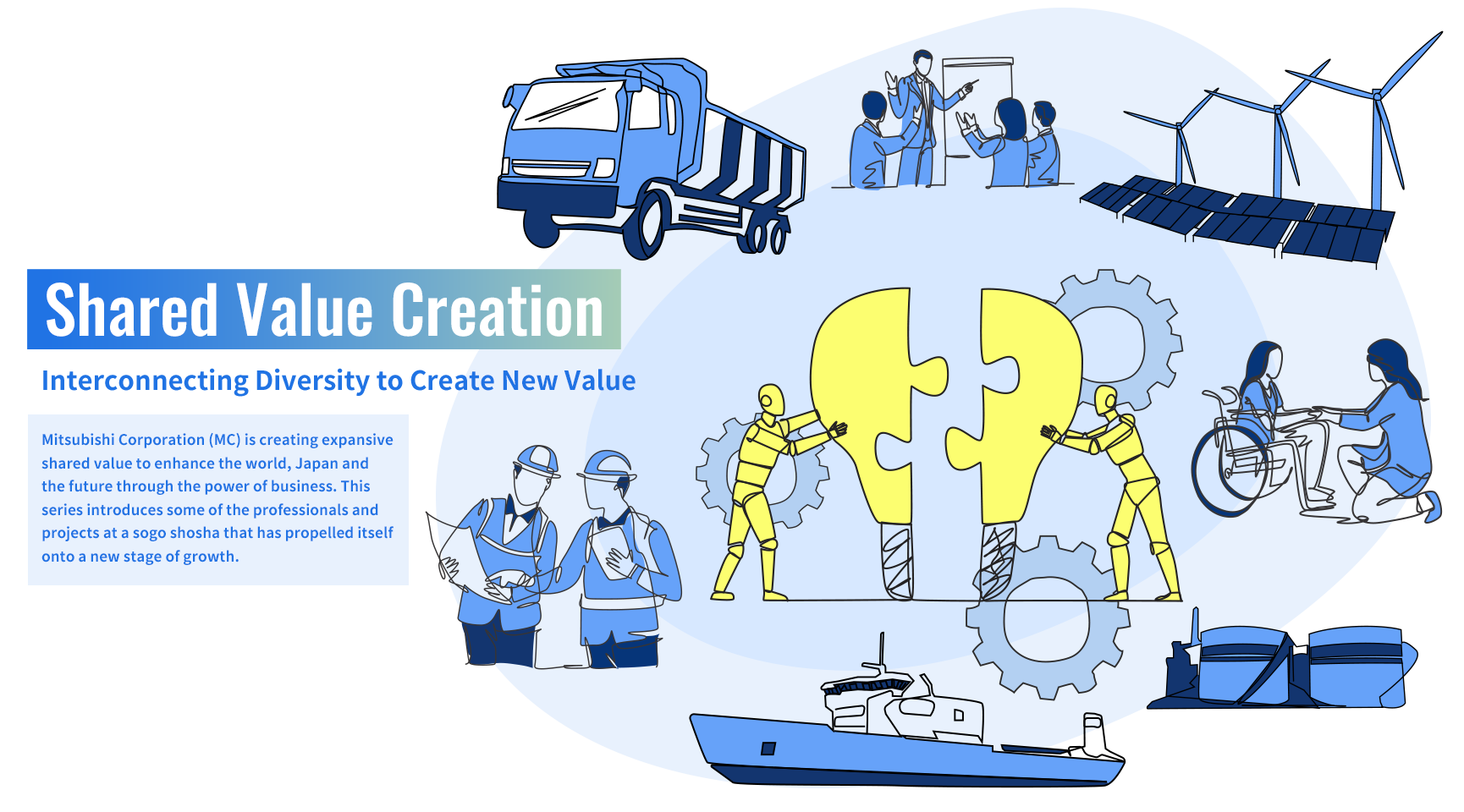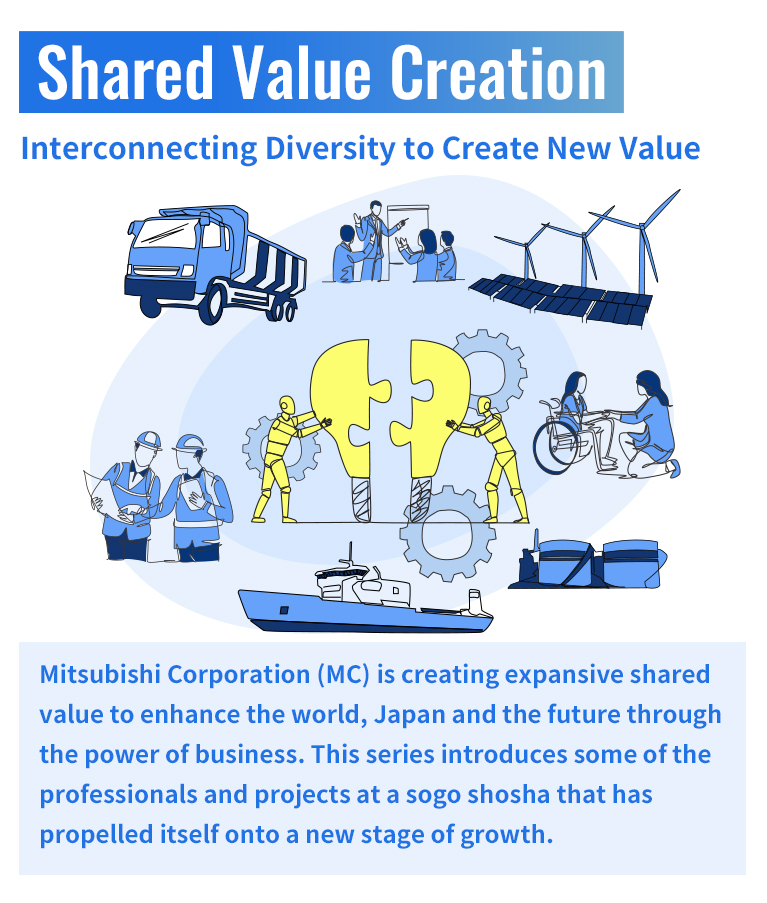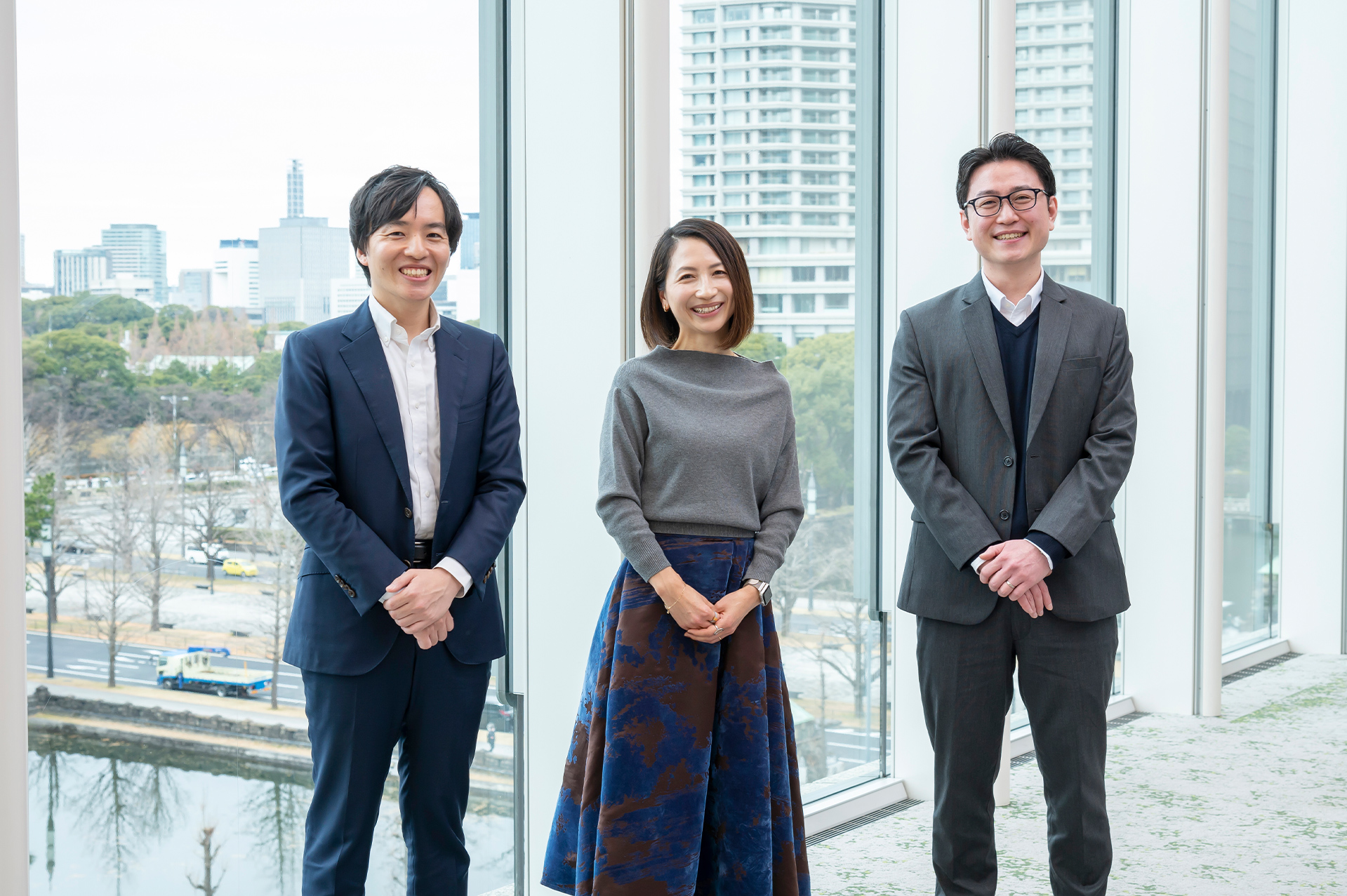Acting at times as a companion to the sales group and at other times as a "co-pilot" to management, Corporate staff play a vital role in supporting Mitsubishi Corporation’s business operations. In the second half of this roundtable discussion, we spoke about our career paths, job satisfaction, and thoughts on the future. (Interviewer: Kazuhiro Sekine, Editor-in-Chief of Asahi Shimbun GLOBE+)
-
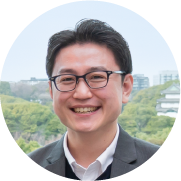
Chung-kyo Lim
Global Planning & Coordination Dept.
Asia & Oceania Office -
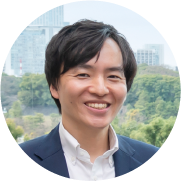
Takahiro Ataku
IT Services Dept.
IT Infrastructure Team -

Misako Hatanaka
Business Investment Management Dept.
Investment Management Team
Senior Manager
*Affiliations are as of the interview in January 2025.
*Titles are omitted in the text.
[Interviewer] Kazuhiro Sekine (Asahi GLOBE + Editor in Chief)
Launching a Career from Overseas Offices: Becoming a Role Model for Successors
—— In the first part of this discussion, we heard about the work you are currently responsible for. Now, could you tell us about your career path so far, starting with Mr. Lim from the Global Coordination Department?

Lim I was born in South Korea and raised in Japan, where I lived until graduating from high school. I returned to South Korea for university and joined Mitsubishi Corporation Korea — one of Mitsubishi Corporation's overseas offices —in 2010, where I was in charge of finance and accounting. In 2013, I was seconded to the Tokyo headquarters — a move I had hoped for — and for the first time, I handled consolidated accounting in the management department of the Metals Resources Group. Transitioning from a role focused on reporting figures to one that involved receiving them gave me a clearer understanding of what information is needed and why. The perspective I gained at the Tokyo headquarters proved invaluable, even after I returned to Mitsubishi Corporation Korea three years later. In 2019, I was seconded to Singapore. I joined an organization that broadly supported group companies across the Asia region, which involved frequent travel — about once every two weeks — to countries such as Myanmar and Bangladesh. My responsibilities ranged from market development and drafting internal regulations to supporting events. As a result, I gained a deep understanding of various Asian market and developed a sense of how business evolves in each country, which was a significant achievement. During the COVID-19 pandemic, I was involved in crisis management and evacuation support across the Asia region, working closely with the Crisis Management Office at the Tokyo headquarters. After that, I returned from Singapore and joined the Tokyo headquarters in April 2024 as a "career hire," taking on a role in the Global Coordination Department.
—— From South Korea to Tokyo, Singapore, and across Asia, your career truly exemplifies the global path typical of a trading company professional.
Lim The Global Coordination Department plays a key role in engaging with our overseas offices, so the probability of being stationed abroad is high. For those who want to work on a global stage, it is one of the most fitting departments within the company. Our team is made up of individuals from diverse backgrounds, including employees from South Korea, China, Egypt, Africa, Europe, and the United States. When you look at the Tokyo headquarters, diversity expands even further, encompassing perspectives from around the world. I believe that building an organization enriched by multifaceted perspectives and values — including intelligence (as discussed in Part One), market development, and human resource strategy — will become increasingly important in the years ahead.
—— Are there many cases like yours, where people join the Tokyo headquarters from overseas offices?
Lim Career hires from overseas offices are still relatively uncommon in Corporate. By delivering strong results in this role, I hope to serve as a guidepost for employees of different nationalities and for those aspiring to join from overseas offices. I want to continue growing, not only for my own development but also to show that Mitsubishi Corporation is a place where people can thrive, regardless of their background.
Navigating Value Differences in Overseas Assignments: How to Overcome Them
—— Hatanaka, you built your career as a risk management specialist.

Hatanaka My career started in the Credit Risk Management Department of Mitsubishi Corporation Financial Services, a finance and accounting group company, where I was responsible for collecting client receivables. I then transitioned to the Management Department of the Food Industry Group, overseeing budgeting, settlement, and business investment management. During a secondment to Mitsubishi Shokuhin, a food distribution group company, I also contributed to the development of an Enterprise Risk Management (ERM) system to centrally manage the company's overall risks. After taking maternity and childcare leave, I was assigned to London in 2018. There, I was seconded to Diamond Generating Europe, a company specializing in renewable energy investments, where I served as a risk manager. My responsibilities included establishing and operating the investment and loan committee, as well as developing and organizing risk-related regulations. In 2020, I was posted to the Netherlands following Mitsubishi Corporation's acquisition of Eneco, an integrated Dutch energy company. I was tasked with supporting the establishment of internal controls to ensure reliable financial reporting. While this work centered on internal corporate risks — distinct from credit or business investment risk — it still fell within the broader scope of risk management. Despite the challenges, I completed the assignment and returned to Japan in the summer of 2023. I currently serve as General Manager in the Business Investment Management Department, where I oversee investment project reviews for four sales groups.
—— In your overseas assignments, you must have faced many cultural and value differences.
Hatanaka Yes, in the Netherlands, I encountered differences in attitudes towards risk and rules. In Japan, there is generally a rule-based approach that emphasizes adhering to established guidelines. If the rules do not align with reality, the tendency is to revise the rules themselves. In contrast, the Netherlands follows more of a risk-based approach — people tend to think in terms of the risks the rules are intended to mitigate. At first, I did not recognize this difference, so there were times when our discussions did not align, and it was quite challenging. Even the way of speaking is quite different. If I used the indirect expressions common in Japan, I was often met with, "I don't understand what you are trying to say" (laughs). Dutch people tend to be very direct, clearly stating whether they agree or disagree, or like or dislike something. Additionally, the way of debating is different. When opinions clash, the Japanese approach often involves finding a middle ground or compromise. In the Netherlands, I was puzzled when asked, "Are you not confident in your opinion?" when I tried to soften my stance. In the Netherlands, there seems to be a preference for open, assertive debate, with a clear winner emerging from the discussion. Interestingly, even after heated exchange, personal relationships remain unaffected. This straightforward stance was refreshing and pleasant.
—— There must have been numerous misunderstandings and miscommunications due to cultural differences. How did you overcome them?
Hatanaka I didn't do anything special; it was more about having sincere, detailed discussions and gradually building trust. I felt like I was engaging with others as my "full, authentic self," which seemed to strengthen my interpersonal skills and was both stimulating and enjoyable. Even now, former colleagues contact me when they visit Japan on business, and we go out for meals. In terms of communication methods, I feel I have acquired the skill to choose a position where I can act naturally, without fully adapting to others nor sticking to my own style. Even in my current role, I encounter difficult discussions, but my experience communicating with people from diverse backgrounds has proven to be incredibly valuable.
—— You brought your family with you when you were assigned to London and the Netherlands, correct?
Hatanaka Yes, I was assigned to London with my husband and two children — who were 5 and just a few months old at the time — right after returning from maternity and childcare leave for my second child. I had expressed my desire for an overseas assignment and was able to work closely with the company well before my return to make it happen. My husband attended graduate school while taking on much of the housework and childcare. The assignment was made possible with the help and support of the company, my family, and many others. In Japan, women often have to slow down their careers due to childbirth and childcare, whether they want to or not. I hope my experience can serve as a reference for others. Personally, I also hope my daughter will one day want to work — just like her mom.
From Aspiring Researcher to IT Business: The Reason for the Challenge
—— Ataku, I understand you joined Mitsubishi Corporation hoping to work in the IT Services Department.
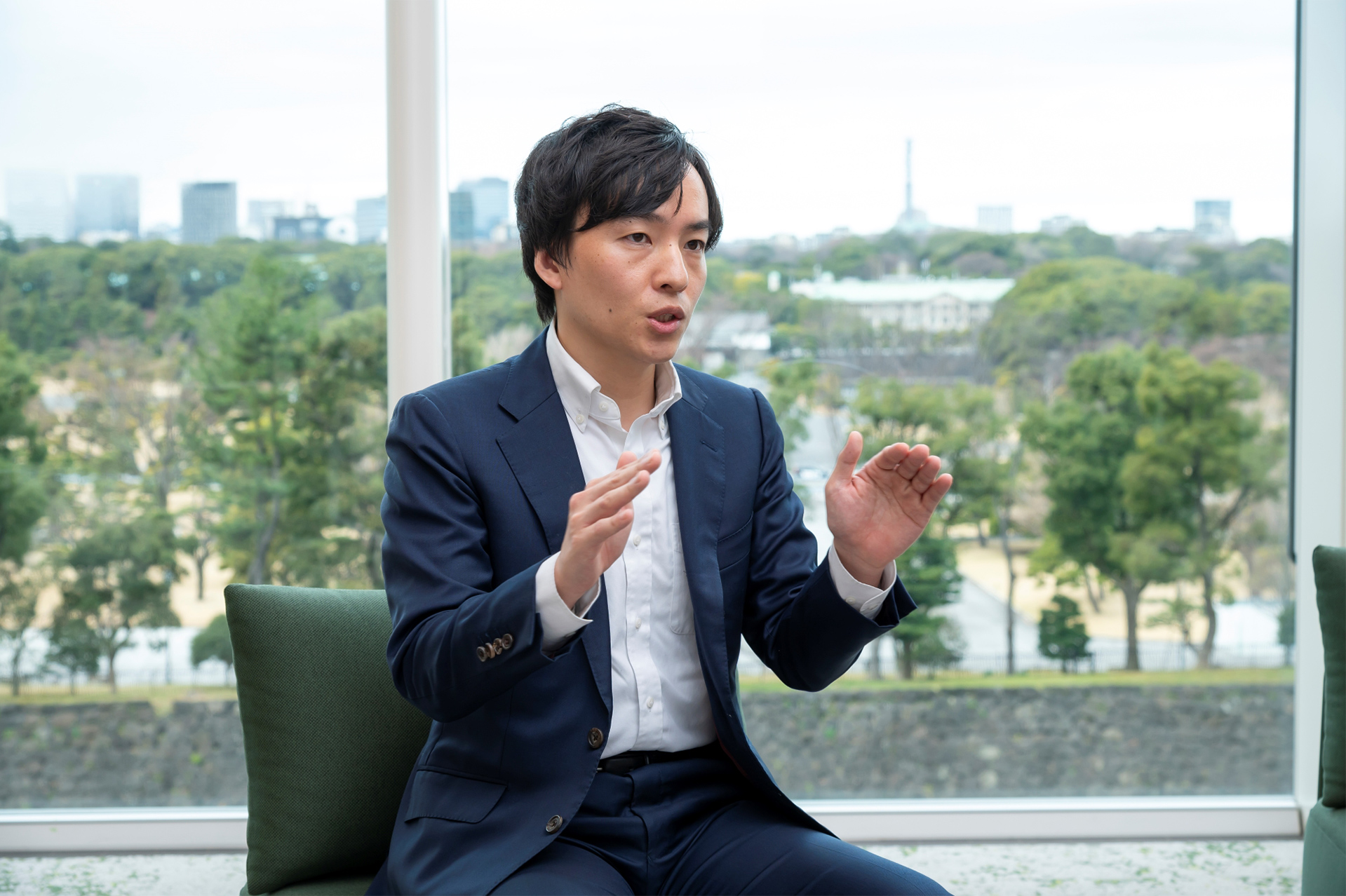
Ataku Until graduate school, I was conducting my studies in the energy field with the intention of becoming a researcher. However, after interning at several companies, I strongly felt that I wanted to solve social issues by implementing advanced technologies in real-world settings. This led to a stronger interest in business over academic research. At that time, AI and cloud computing were rapidly evolving, so I became eager to work in a business where I could leverage cutting-edge IT and digital transformation (DX) technologies. I joined Mitsubishi Corporation in 2016.
—— After joining, you wanted to get into the field quickly, right?
Ataku That's right. In the IT Services Department, I was involved in strengthening Mitsubishi Corporation's back-office systems and supporting the IT and DX initiatives of various group companies, including the electricity retail business, construction equipment rental business, and [the Japanese convenience store chain] Lawson. Later, my aspiration to work in the field was granted, and I was seconded to Lawson in 2020, where I was involved in developing AI.CO (AI Customized Order/AI Consultant). (See Part One.) In developing AI.CO, I placed great emphasis on listening carefully to the people in the field. Without understanding the workflow and processes, it is impossible to create a user-friendly system, especially since the "obvious" decisions and tasks tend to be difficult to verbalize. Carefully capturing these details greatly affects the usability of the system. The numerous interviews with Lawson's sales department, supervisors, and store owners played a crucial role in shaping the development of AI.CO.
—— How will you leverage your experience at Lawson in your future work?
Ataku My time at Lawson heightened my awareness of what it means to work "for the store" and "for the customer". I also realized the importance of ensuring systems operate reliably 24/7. To support stable corporate and group management, I will continue to focus on IT management, infrastructure development, and system development across the company. Additionally, I hope to contribute to solving social issues by working with the sales group on new business areas, including those overseas.
A Mix of Diverse, Talented People Adds Value to the Organization
—— Listening to your career transitions, I was surprised by the frequent internal secondments to sales groups and group companies.
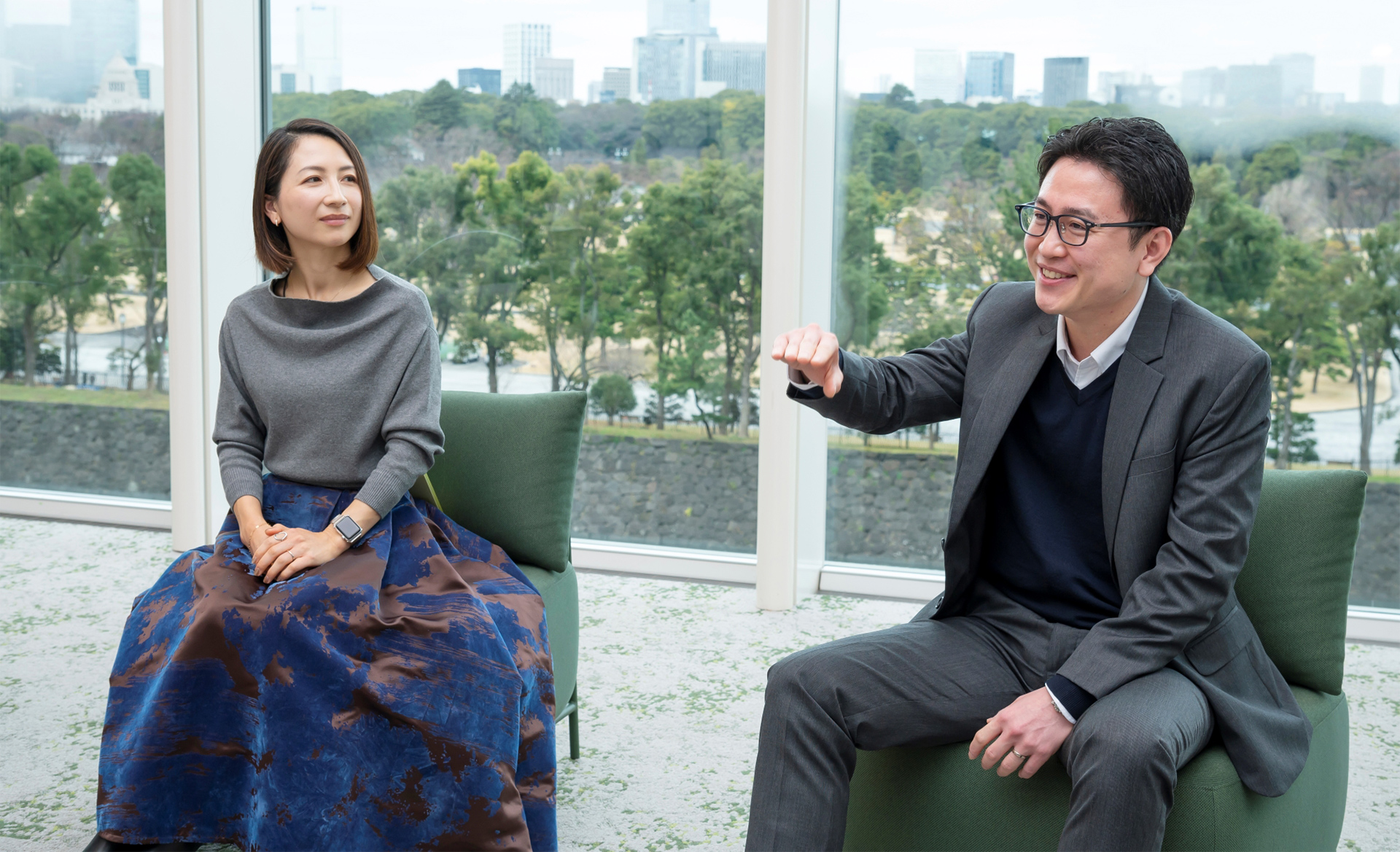
Hatanaka Yes, there are many career paths that involve moving between Corporate at the headquarters and the sales groups or group companies. By alternating between roles that offer a company-wide management perspective and those rooted in specific business areas, corporate staff members can gain deeper, more well-rounded insights. Having been seconded to a renewable energy company, I have more knowledge and experience in risk management in that industries compared to others. Ataku My secondment to Lawson allowed me to understand the perspectives of those working in the sales field, which helped me develop systems that reflect their needs. Personnel rotation is meaningful because it allows for a multifaceted perspective.
—— Conversely, do people from the sales groups also move to Corporate?
Hatanaka Yes, especially in the Business Investment Management Department, where I currently work. Our teams are a mix of long-time corporate staff and employees seconded from the sales groups. The deep expertise and extensive experience that the sales groups bring from their business areas are very beneficial for advancing risk analysis. After returning to the sales groups, they also play a role in promoting risk management concepts. Lim My supervisor in the Global Coordination Department was originally from the sales group. They bring perspectives that those of us who have spent most of our careers in Corporate might not have, and there is a lot to learn from them. On the other hand, my supervisor says, "Being in the Global Coordination Department, where I can oversee the global operations, has greatly expanded my knowledge. Moreover, being close to top management has significantly increased my understanding and appreciation of Mitsubishi Corporation's overall management." I believe this kind of cross-functional personnel rotation — where both sides benefit — should be further encouraged in the future.
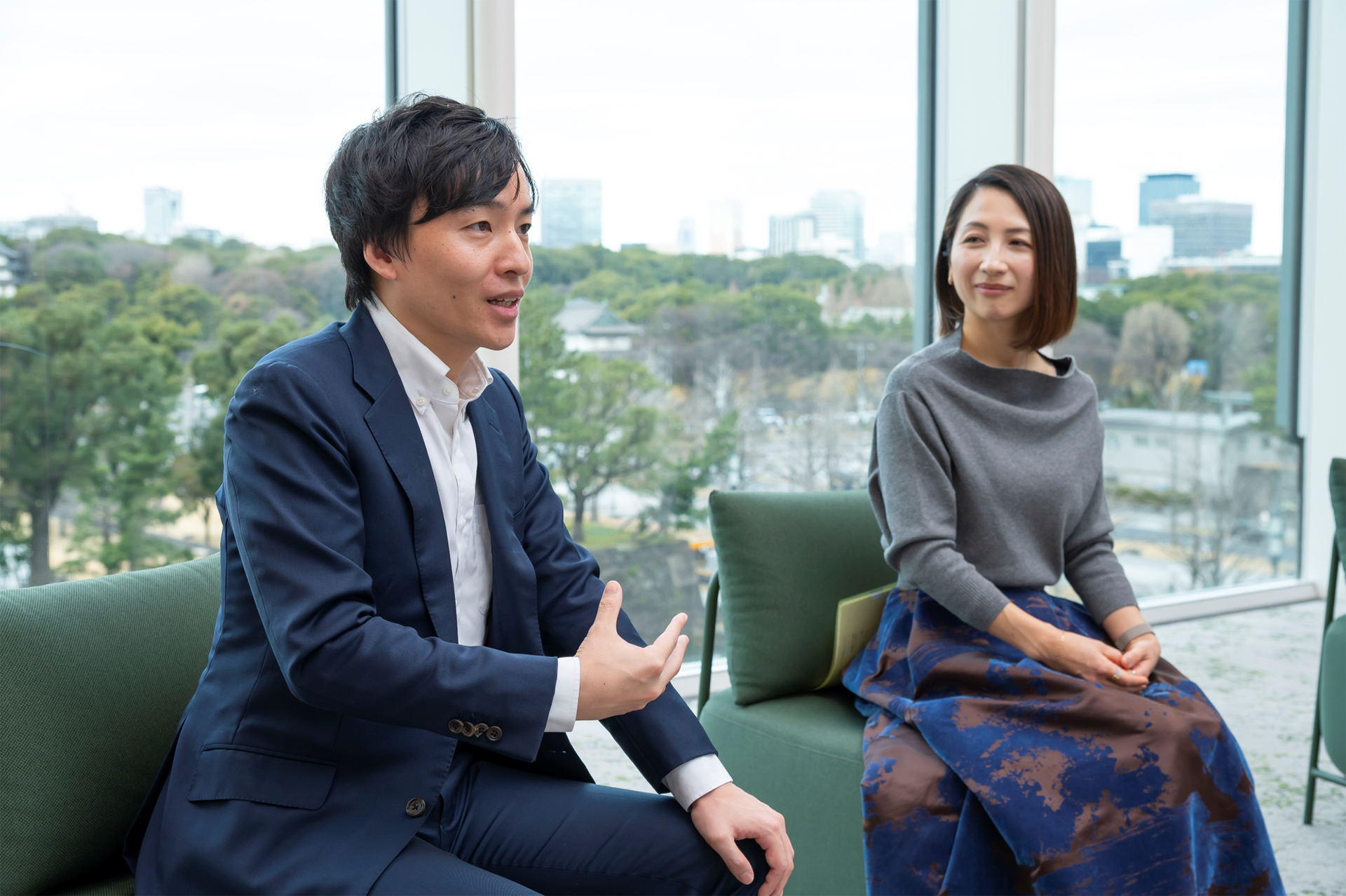
—— Mitsubishi Corporation's midterm corporate strategy 2024 emphasizes "dynamic, spirited and vibrant organization." How do you feel about the working environment and the various different systems at MC?
Ataku
I think the company is very enthusiastic about human resource development. When I was a new graduate, I had almost no industry knowledge, but there was a thorough training program to learn the basics of IT and digital systems, which was very helpful. I have gotten different kinds of support since then, and I even obtained a qualification for AI engineers, which I utilized in the AI.CO project.
Additionally, we have regular meetings with HR and department managers to discuss our career path, aligning them with our individual goals and aspirations. Although I have not used it yet, the company also offers a "Career Choice" system*, which allows employees to apply for transfers to organizations they’re interested in, showing that the company values our motivation and career development.
* "Career Choice" system: A self-nomination transfer system. Based on individual’s career aspirations and abilities they want to develop, the system supports transfers to organizations they’re interested in. Other systems promoting autonomous careers include the "Dual Career" system, which provides opportunities for skill acquisition and growth through internal side jobs, and the "Sabbatical Leave" system, which allows for re-learning by attending domestic and international universities
Lim
In terms of corporate culture, I appreciate the openness that allows employees to freely express their opinions, regardless of position. Regarding systems, the generous allowances and support provided during overseas assignments were very much appreciated. Thanks to this, I could focus on my work and quickly adapt to the local environment without feeling anxious or inconvenienced about living abroad.
Hatanaka
The flextime system allows for flexible working hours, which I also use. With children in elementary and junior high school, it is very helpful in instances where I want to leave work for a few hours to attend a school event. This system is a great help not only for childcare, but also for various other circumstances, such as caregiving. Some colleagues use the Spouse Transfer Accompaniment Reemployment System*, which helps employees continue their careers after joining their partner for their relocation
* Spouse Transfer Accompaniment Reemployment System: A system that reemploys employees under certain conditions if they resign to accompany their spouse's domestic or international transfer.
"Anywhere, Anything": The Possibilities Are Endless
—— Finally, please tell us again about the appeal and excitement of working in Corporate.
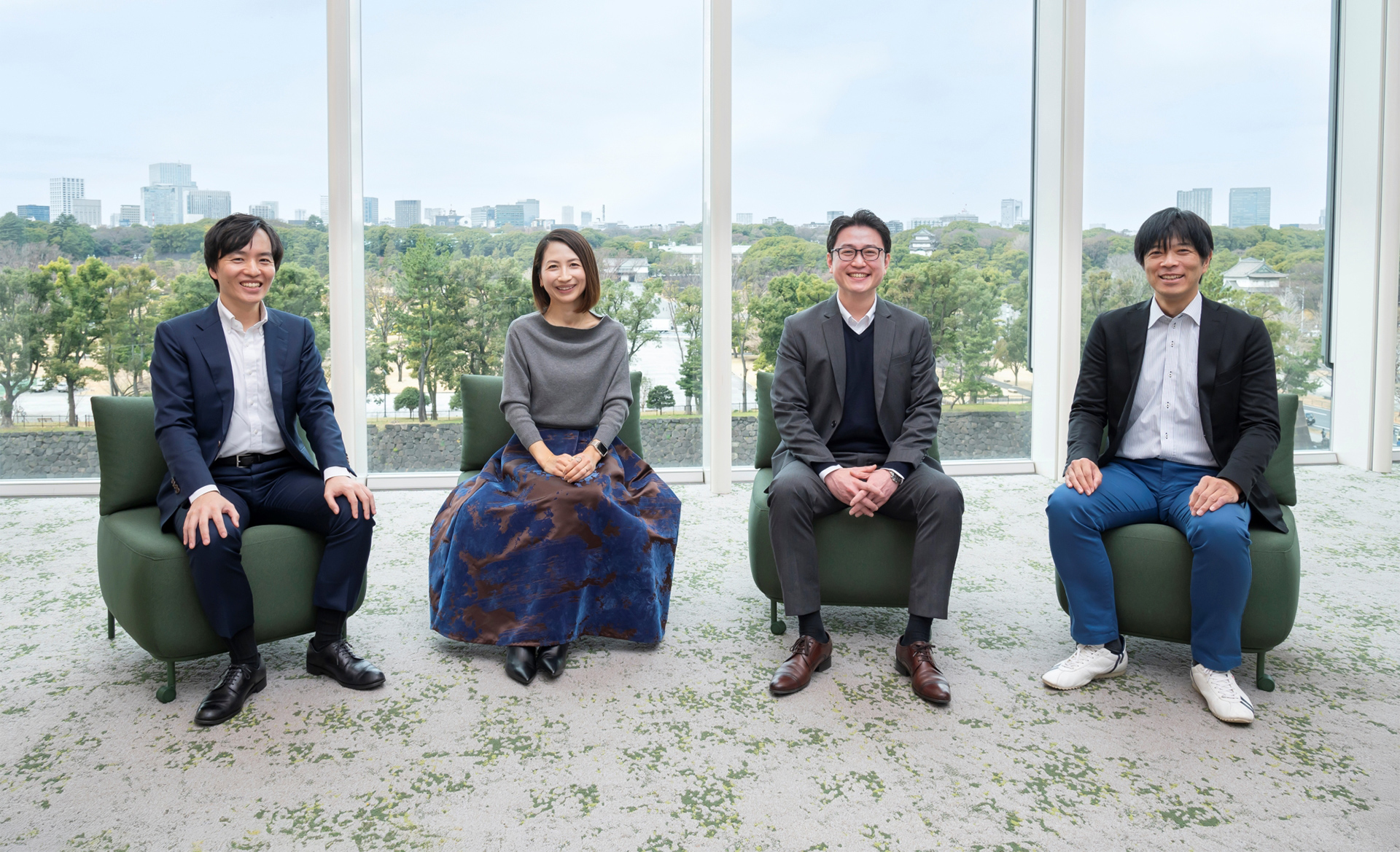
Ataku
The expertise and functions of Corporate staff are highly transferable across different business areas, enabling you to work seamlessly across industries and sectors. Since Mitsubishi Corporation's business is so broad, I feel I can enjoy that excitement even more. I want to continue to improve while feeling the unique appeal of Mitsubishi Corporation’s corporate team.
Lim
The point is that you can do anything you want. For example, in the Global Coordination Department, you can engage in financial and accounting, HR, and even sales activities like marketing and business development. If you have the motivation and ability, you can work in any country, region, or business. That's the appeal.
Hatanaka
It is an environment with a lot of learning and stimulation. Mitsubishi Corporation has a wide range of industries, so you encounter various projects. In the process, you have opportunities to communicate with people from various business fields. Being able to interact with people with different expertise, values, and sensibilities is both stimulating and very enjoyable.
By refining your expertise, you can spread your wings to any country, region, or business area. This vast potential is one of the most compelling aspects of working in Corporate.
*Group names and department names are listed with the names corresponding to the organization as of March 2025.
